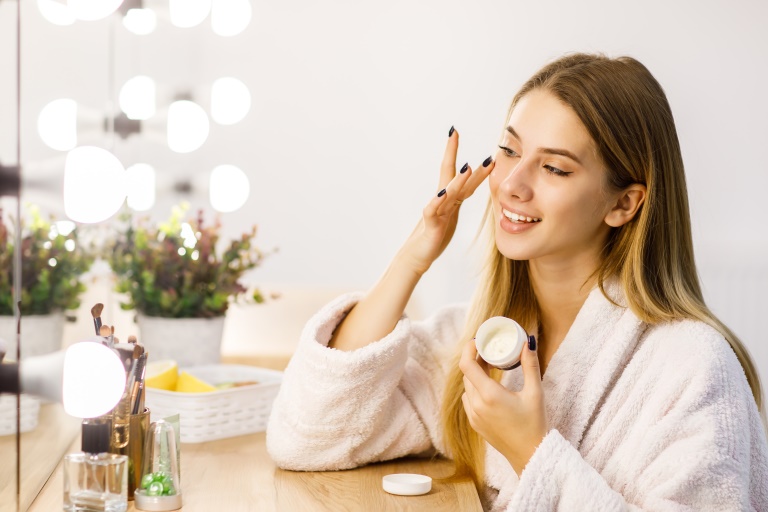Bhawna Thakur
North News
Chandigarh, December 3
India’s diverse climate affects skin differently across regions. In northern states like Himachal Pradesh and Punjab, severe cold combined with lower humidity aggravates conditions like eczema and xerosis. Meanwhile, fungal infections such as ringworm are more prevalent in southern and coastal areas during humid winters. Winter dryness often goes untreated, leading to secondary issues like dermatitis or infections. Early intervention with proper skin care can prevent most problems.
“You don’t have to overhaul your entire skincare regime, but switching to heavier creams during colder weather is a smart move,” says Dr. Kiracofe in a piece for the American Academy of Dermatology Association. She advises reducing the use of products containing alpha hydroxy acids (AHAs) and beta hydroxy acids (BHAs), commonly praised for their anti-aging benefits like smoothing fine lines and wrinkles. “In the winter months, these ingredients can irritate the skin, even when paired with moisturising creams,” she explains, stressing the need for a gentler approach during harsh weather.
About 60% to 70% of women and 50% to 60% of men report having sensitive skin, according to research published in 2019 in Frontiers of Medicine. Globally, South Asia, which includes India, has one of the highest burdens of skin and subcutaneous diseases, with fungal infections being a predominant issue during winter, according to the Frontier Journal.
Winter skin care doesn’t have to be complicated. Small, consistent efforts like staying hydrated, using protective products, and eating right can make a big difference. Make winter skincare more enjoyable with a self-care ritual approach:
- Morning Glow Routine: Cleanse gently, apply a hydrating serum, follow with a moisturiser, and finish with sunscreen.
- Evening Repair Routine: Double cleanse, use a nourishing facial oil, and seal with a night cream.
- Weekly Pampering: Treat yourself to a hydrating sheet mask or an at-home spa session with essential oils like lavender.
According to the news outlet Business Standard, there are tips you should try to fight the winter skin problems.
Use of Luke water
It might feel tempting to wash your face, hair, or body with hot water during the winter, but this can disturb your skin, leading to dryness and inflammation. Go for lukewarm water to cleanse without causing any irritation or stripping away the essential oils.
Moisturise
Moisturising is very crucial, as in winters the dryness in the air is at its peak, as humidity falls sharply. Because of the harsh weather, the skin goes through a lot of cracking and chapping, so heavy moisture is essential in this season.
Rethink Your Cleansing Routine
Use soap-free or creamy cleansers that maintain skin’s pH balance. Avoid over-cleansing, which strips off natural oils present in our skin.
Layer Your Skincare
Adopt a layering approach: start with a hydrating serum, followed by a rich moisturiser, and finish with sunscreen. This ensures deeper hydration and maximum protection.
There are many more things that you could do, published by Ye New Hospital.
Avoid scents
Scented products, be they soaps, beauty products, detergents, or dryer sheets, can all be a reason for the skin problems, so be smart and switch to products that are clear, free, and unscented.
Say hello to sunscreen.
People stop using the sunscreen once the summers are over, where it is advisable as the UV rays of the sun are still strong. Sunscreen is very effective for the skin and body, even in winter.
According to Style Craze, a lifestyle website
Make your diet a priority.
Go for a lot of veggies, seasonal fruits, berries, salads, juices, and milk so that your body gets all the essential nutrients that are needed to keep your skin healthy.
Workout
It’s hard to leave your blanket in the chilly weather, but do it for your skin. Exercise will pump up your heart rate, which in turn pumps more blood to your organs and skin.














